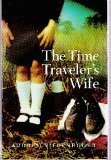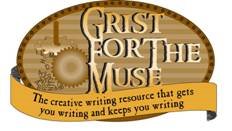 The Time Traveler's Wife by Audrey Niffenegger
The Time Traveler's Wife by Audrey NiffeneggerMy review
rating: 2 of 5 starsI had very high expectations for this book. Several people I know read it and loved it, and I love anything that has to do with time travel so this seemed to have all of the elements of a favorite book right there. But it fell flat.
Maybe this is a guy vs girl thing. Chicks think this story is romantic, finding the perfect, eccentric, man who just happens to be a fantastic lover... but he disappears from time-to-time, oh and he can win the Lotto... at will. I don't know, maybe I need to get the female perspective on this book. Maybe I'm missing something.
Things I Liked
- I liked how the story was told in short, out of sequence segments, it built the characters based on the relationship between the two of them in different times.
- As a writer, I can appreciate how difficult it had to be to tear this story apart, stitch it back together, and make sure that it fit and had no loose ends.
- Claire and Henry are likable viewpoint characters.
- The book is engaging. You want to keep turning pages to find out what happens next, expecting something big... but the problem is, nothing big ever does happen.
Things That Bothered Me
- There's something kinda creepy about you traveling back in time to visit your future wife at age 6.
- The author really glossed over some of the more interesting aspects of time travel, like how he can't change something that has already happened. She presents it as he's just powerless to act (sort of like losing your voice or being unable to move in a dream). It is a cop out. I also find it strange how he can time travel to be with himself... isn't there paradox issues to deal with here... I mean I really was trying to suspend disbelief here, but it was a bit hard to believe. In any good sci-fi or fantasy you need to clearly delineate the rules that govern the fantastic power and she didn't do that here.
- Not a lot of conflict throughout the story. Other than the inconvenience of the time traveling, but the characters mostly all got along with few issues between them.
- Why is Henry a librarian? He doesn't have to work a day in his life, yet he works there.
- Why does Claire's family accept Henry so easily considering the age difference, the class difference, and the just plain weirdness that surrounds him?
- Why does Henry change his hard-driving, womanizing lifestyle so easily after meeting Claire? It seems as if he would not change overnight, and that could have created some much needed conflict for the novel.
- It ended too abruptly. The loose ends between Claire and Gomez, Henry's last letter to Claire... did she heed his advice? I can't tell.
View'>http://www.goodreads.com/review/list/42982?utm_medium=api&utm_source=blog_review">View all my reviews.

